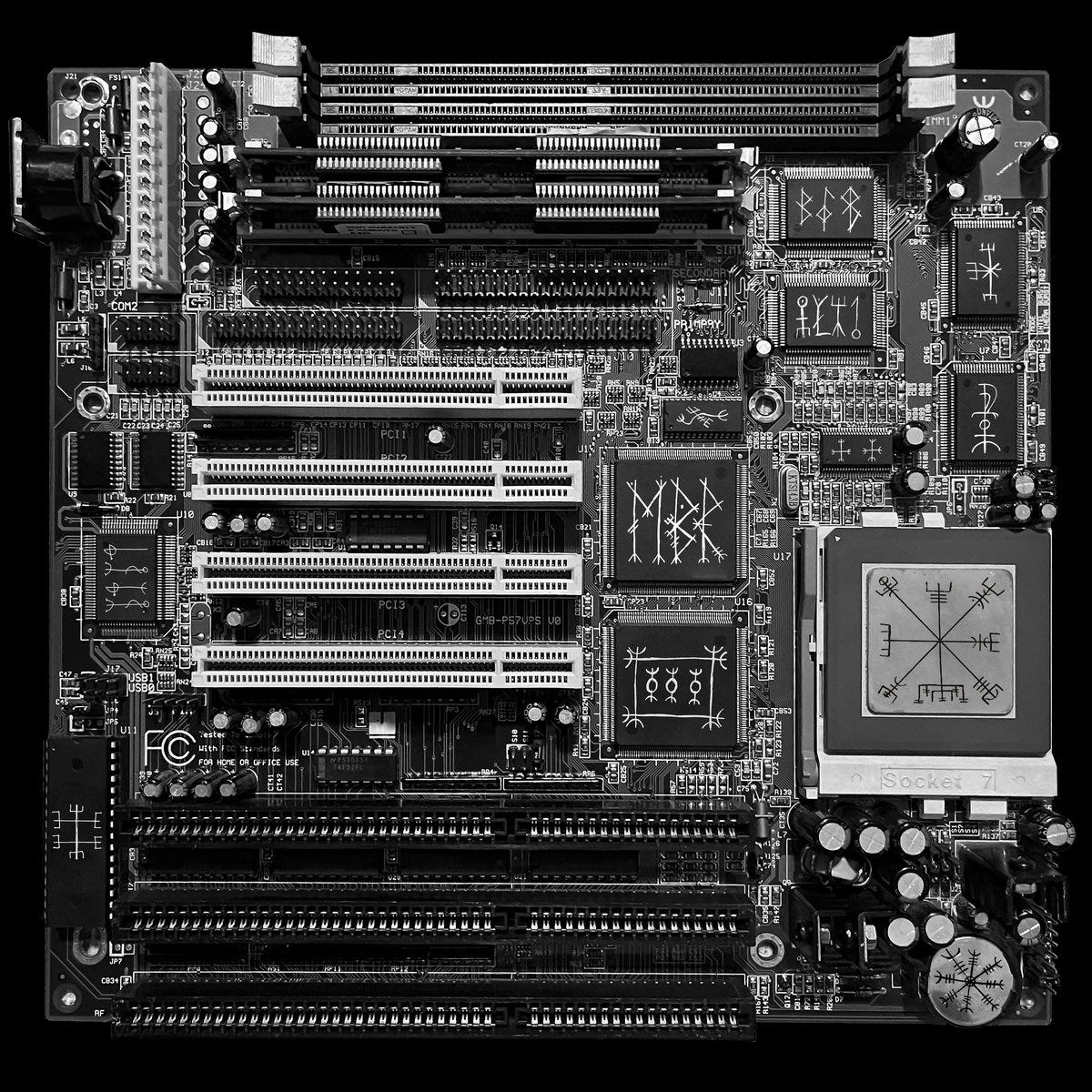Master Boot Record - Hardwarez (ALBUM REVIEW)
Release date: October 11th, 2024 (via Metal Blade Records)
Master Boot Record (henceforth shortened to MBR for convenience’s sake) has always been a musical project that belongs to a soft spot in me: an amalgamation of instrumental heavy metal and chiptune that harkens back to the early era of computers: from Bobby Prince composing the soundtrack of the 1993 DOOM using bits and pieces from the great names like Pantera, Slayer, and Metallica, to the demoscene and their legendary tracker songs - one of them being “Unreal Super Hero 3” by Kenët and Rez.
I first came across MBR with “Internet Protocol”, which I consider the aural wet dream for any edgy nerds who also happen to dilly-dally with modern heavy metal: also known as, quite frankly, the majority of the Escape from Tarkov community and another significant handful of people who used to wander on the music part of Newgrounds (or, in a less projecting manner, yours truly). After “IP”, mastermind Victor Love did a hat-trick in 2020 with three full-length releases and then released another one in 2022 - all of them being solid(-state) works of music.
The year is now 2024, and the machine has cranked out its latest offering “Hardwarez”. Question is, how does it fare against the admittedly sizeable discography of the MBR?
The immediate impression is that this is not quite a MBR album. In essence, it still is - albeit evolved. This is said in the sense that all the elements found in the codes of MBR are still present, but pushed further (or, per the PC geek’s glossary, overclocked) in “Hardwarez”: what is even more fascinating is the presence of actual guitars (or, at the very least, it does seem very likely to be so - it could very well be VST for all we know) complementing the usual suspects of FDD-esque riffage, keygen leads, synth orchestra - all on top of surprisingly organic-sounding drum programming this time around. This is most apparent halfway through the 41-minute album, specifically in the RAM.
On the tangent of riffwork, it is also worth mentioning that “Hardwarez” features a markedly more versatile assortment of riffing styles: that is, it seems as though there is a wider range of influences to be found here. Callbacks/homages to bands/artists - both classic and video games-rooted alike - from Mastodon, Slayer to folks like Andrew Hulshult, Xenogen, and - of course - Geneburn are often spotted here and there. I mean, HDD does sound an awful lot like something I’d hear while fighting gear fear before getting myself into the unforgiving landscapes of Tarkov.
Eight years online, and eleven albums in, but the MBR is far from showing even the slightest sign of wear and tear. What I find impressive is how “Hardwarez” turns out to be an evolutionary step for the 486DX-33MHz-64MB machine, when its programming develops to a point where it starts to sound - while unmistakably synthesized and mechanical - more organic in an eyebrow-raising manner.
01010100 01101000 01100101 00100000 01100011 01101111 01100100 01100101 00100000 01101001 01110011 00100000 01110011 01110000 01110010 01100101 01100001 01100100 01101001 01101110 01100111 00100000 01100001 01101110 01100100 00100000 01100101 01110110 01101111 01101100 01110110 01101001 01101110 01100111 00100000 01100001 01110011 00100000 01110111 01100101 00100000 01110011 01110000 01100101 01100001 01101011 00101110





